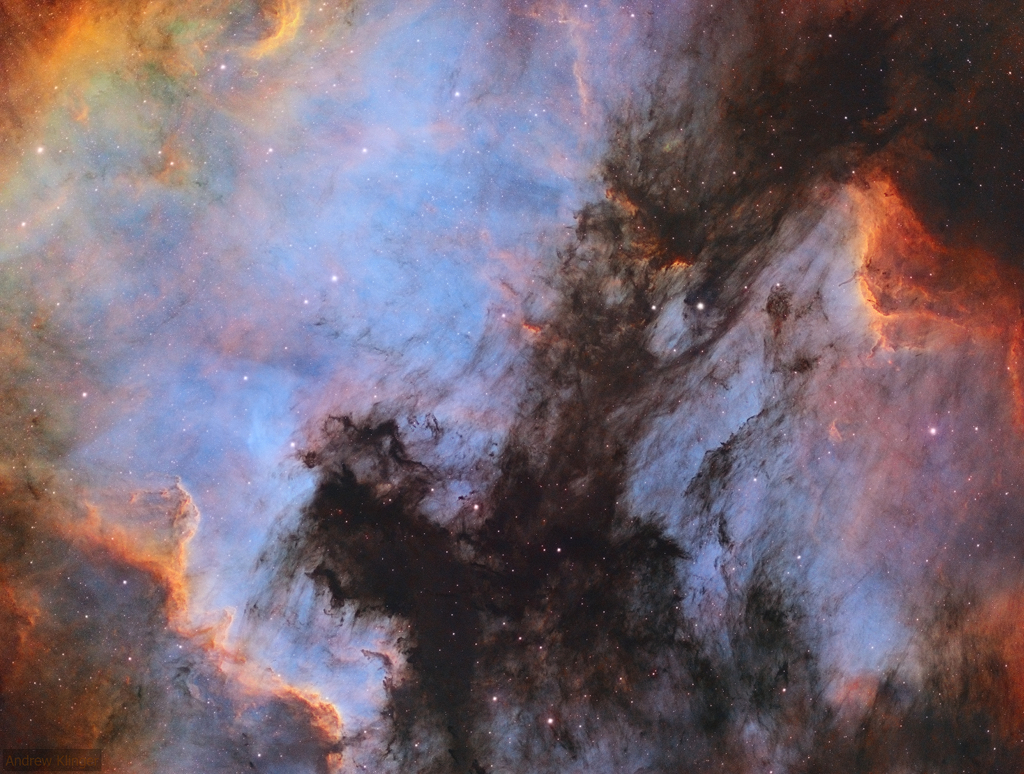2021年9月16日
North America and the Pelican
Image Credit & Copyright: Andrew Klinger
Explanation: Fans of our fair planet might recognize the outlines of these cosmic clouds. On the left, bright emission outlined by dark, obscuring dust lanes seems to trace a continental shape, lending the popular name North America Nebula to the emission region cataloged as NGC 7000. To the right, just off the North America Nebula’s east coast, is IC 5070, whose avian profile suggests the Pelican Nebula. The two bright nebulae are about 1,500 light-years away, part of the same large and complex star forming region, almost as nearby as the better-known Orion Nebula. At that distance, the 3 degree wide field of view would span 80 light-years. This careful cosmic portrait uses narrow band images combined to highlight the bright ionization fronts and the characteristic glow from atomic hydrogen, sulfur, and oxygen gas. These nebulae can be seen with binoculars from a dark location. Look northeast of bright star Deneb in the constellation Cygnus the Swan.
Tomorrow’s picture: Flash on Jupiter
北美洲与鹈鹕
影像提供与版权: Andrew Klinger
说明: 美丽地球的粉丝,可能不难认出这些宇宙云的轮廓。在影像左方,边缘镶着黝黑不透光尘埃带的明亮辐射区,看似有地球大陆的外观,因此这团编录号为NGC 7000的发射星云,拥有北美洲星云的昵称。近在北美洲星云右方的东岸外头,可见到IC 5070,其外观则为它博得鹈鹕星云的称号。这二个约1,500光年远的明亮星云,是一个庞大、几乎和猎户座大星云一样邻近的恒星形成区复合体的一部分。以这个距离来换算,这张3度跨幅的广角影像,宽约有150光年。这张精心规划的宇宙影像,组合了数张窄波段影像照片,以突显明亮的电离前沿和原子氢、硫、和氧发出的特征辐射。在有幽暗天空的地方巡礼天鹅座时,用双筒望远镜即可在亮星天津四的东北方看到这些星云。
明日的图片: Flash on Jupiter







